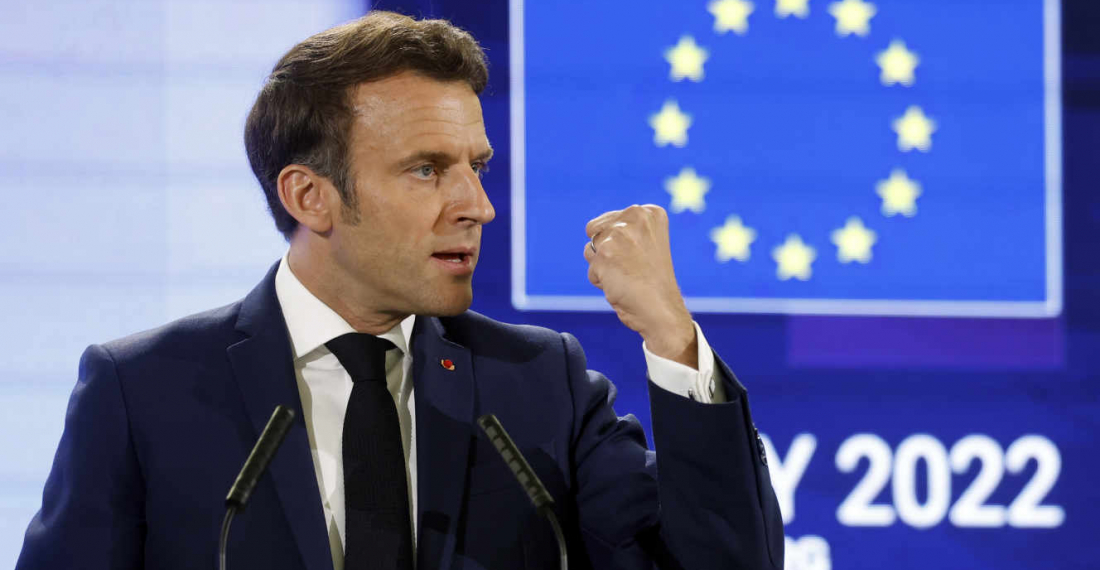French President Emmanuel Macron's proposal to create a "European Political Community" can, if handled correctly, provide a permanent framework where EU countries and other European states can interact on critical political and security issues. However, for the community to succeed it must not simply become an extension of the EU. It must be designed to ensure that all countries involved have a voice in fostering political dialogue and cooperation in order to address issues of common interest, writes Maximiliaan van Lange in this op-ed for commonspace.eu.
On Europe Day last 9 May, French President Emmanuel Macron launched discussions on the creation of a "European Political Community" (EPC). This proposal would allow like-minded democratic European countries to find a new space for political cooperation and to address political and security-related challenges facing the continent.
The idea echoes François Mitterrand's 1989 proposal for a European Confederation. On 14 September, during the 2022 State of the Union Address, European Commission President Ursula von der Leyen reflected on Macron's idea and indicated that the time has come for the EU to reflect on the strength of its democracy, gather its member states alongside like-minded regional partners, and jointly address complex issues that result from a new security reality in Europe.
The matter is, however, sensitive among both the 27 member states and among the other European countries who are not in the EU, some of who aspire to join the EU and see the idea as a second best option. On 6-7 October, the first informal meeting of the EPC will take place in Prague, as the Czech Republic currently holds the rotating EU presidency. Participating countries include Turkey - an EU candidate country with very little prospect of ever achieving membership, and the UK, a country that has actually left the EU. Others include Norway and Switzerland, who never joined the EU and do not aspire to join, and others.
The war in Ukraine is bound to overshadow the event, but there are other issues the Community can engage with in the future.
Macron's initiative champions compliments the notion of a "Europe as a geopolitical power". So far that has been presented as an EU project - for Europe read EU. The presence in the community of the UK - a member of the UN Security Council with strong armed forces and a nuclear capability, and Turkey, a strong power in the Eastern Mediterranean with a large standing army, give the proposed community an important sharp edge. But both Turkey and the UK are already NATO members, together with most EU member states, with Finland and Sweden poised to join soon.
Although the UK Prime Minister Liz Truss is sceptical about the proposed grouping, she said that democracies must co-operate to counter the threat posed by autocracies. This should be the aim and purpose of the forum. Other countries will then follow along and actively participate in the initiative.
Against the backdrop of Putin's hybrid war with the West, imperialist war in Ukraine, and his exploitation of energy and food as weapons to destabilise the whole world, Macron's idea can help strengthen the democratic rules-based order in Europe.
Overall, the idea of a European Political Community is a positive one. Ensuring that countries like Turkey and the UK can be equal partners in the discussion on the future of Europe's security, is an important and positive step. Making sure that smaller countries in the Balkans and the Caucasus can also be part of the conversation is equally relevant. But for the Community to succeed it must quickly carve a niche for itself in the crowded field of European institutions, which apart from NATO and the EU, also includes the Council of Europe, the OSCE, the Western European Union, not to mention multiple sub regional entities. The best option for the new community is to focus on security, and the security threats poised by the new Russian and Chinese assertiveness.
The European leaders meeting in Prague need to remember Jean Monnet's words that “Europe will be forged in crises, and will be the sum of the solutions adopted for those crises.” The EPC is perhaps the answer to a much larger discussions related to EU enlargement, the setting up of a European defence capability, and the aspiration for Europe to be a global geo-political player in its own right. Macron has limited the scope somewhat, saying that this initiative would “consolidate European stability through multiple cooperation”. In the end it will be circumstances and developments that will define the new community, and its success or otherwise.






